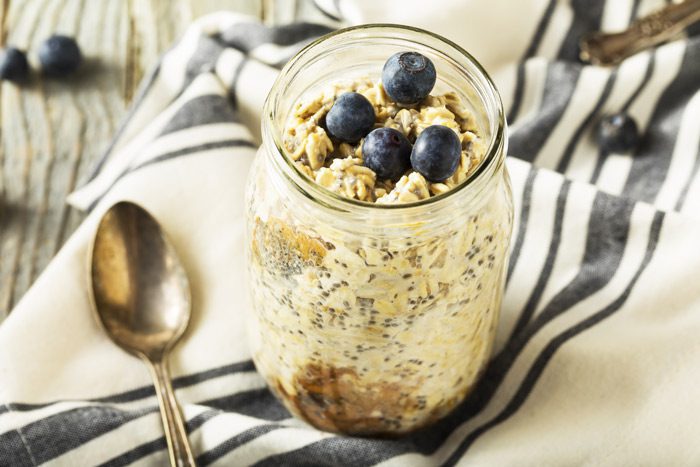 Stress is an unavoidable part of life, which is why it’s important to understand how to cope with stress in a healthy way instead of letting it trigger cravings for drugs and alcohol. At Waypoint Recovery Center’s South Carolina drug and alcohol addiction residential treatment program, we’ve found that sticking to a balanced diet is one of the best ways to manage stress in recovery—whether you’re worried about job loss, relationship issues, a family member’s illness, or current events that are out of your control.
Stress is an unavoidable part of life, which is why it’s important to understand how to cope with stress in a healthy way instead of letting it trigger cravings for drugs and alcohol. At Waypoint Recovery Center’s South Carolina drug and alcohol addiction residential treatment program, we’ve found that sticking to a balanced diet is one of the best ways to manage stress in recovery—whether you’re worried about job loss, relationship issues, a family member’s illness, or current events that are out of your control.
Foods That Can Make Stress Worse
We all know that it’s smart to avoid candy, ice cream, potato chips, and fast food, but even choices that may seem harmless on the surface can be contributing to your high stress level. Foods to avoid when you’re feeling stressed include:
- Coffee. A cup or two is fine, but overconsumption of coffee can leave you feeling jittery and anxious. Caffeine triggers the body’s fight or flight response and exacerbates sleep problems.
- Beef jerky. It’s often marketed as a healthy snack, but beef jerky is frequently full of monosodium glutamate (MSG), which can elevate brain levels of the excitatory hormone glutamate and increase anxiety and stress.
- Canned fruit in syrup. Canned fruit can be a good alternative when fresh fruit is unavailable, but read labels carefully. Fruit canned in syrup is often loaded with high fructose corn syrup, which can cause anxiety-inducing spikes in blood sugar. Look for fruit canned in juice or purchase frozen fruit instead.
- Pretzels. While pretzels are a low-fat snack that’s often viewed as healthier than potato chips, they are still high in sodium and full of fast-digesting carbs. This spikes glucose levels and raises the stress hormone cortisol.
Foods That Help Manage Stress
When you’re feeling stressed, try to incorporate these foods into your diet to naturally improve your mood:
- Herbal tea. Sipping on herbal tea is an all-natural way to keep stress in check. Green tea provides a small amount of caffeine in the morning, as well as an amino acid called theanine. A cup of chamomile at night can help you wind down before bed while promoting a more restful slumber.
- Whole grain bread. When you’re craving carbs, fiber-rich whole grains are the smart choice. They will temporarily increase levels of serotonin, a hormone that boosts your mood and reduces stress levels, without causing the blood sugar spike and crash associated with the unrefined carbs found in cookies, cakes, and white bread.
- Oatmeal. Like whole grain bread, oatmeal is a complex carbohydrate that causes your brain to produce mood-boosting serotonin. Overnight oats prepared in mason jars are an affordable and convenient breakfast option that can easily be customized with your favorite toppings.
- Citrus fruit. Studies have found that high levels of vitamin C help lower stress levels and reduce anxiety. Enjoy an orange or grapefruit with breakfast each morning to help start your day off right.
- Blueberries. Blueberries are high in an antioxidant known as anthocyanin, which improves cognition when you’re feeling stressed. Like citrus fruits, they’re also high in vitamin C. Add them to oatmeal or use them with yogurt to make a delicious smoothie.
- Nuts. Almonds, walnuts, and cashews are full of magnesium, which has been linked to better anxiety management. However, since they are also high in fat, they should be enjoyed in moderation.
- Probiotic yogurt. Probiotics can boost the immune system, protect against harmful bacteria, and improve digestion and absorption of nutrients. Several studies have also found that improving your gut health with probiotics has a direct correlation to improving anxiety, depression, and mood. Probiotics are also available as supplements, but they are costly and less effective than those found naturally in yogurt.
- Garlic. Stress weakens the immune system, but garlic is packed with antioxidants that can keep your body healthy. If you don’t have the time or patience to peel fresh garlic, try jarred minced garlic instead.
- Fish. Fatty fish like salmon, herring, tuna, halibut, mackerel, sardines, and lake trout are heart-healthy and provide omega-3s that can help ease depression when the nutrients interact with mood-related brain molecules. Most nutritionists recommend eating fish once or twice a week for maximum health benefits.
- Grass-fed beef. It’s higher in cost, but grass-fed beef has more antioxidants, including vitamin C and beta-carotene, than grain-fed beef. It’s also two to four times higher in omega-3s.
- Avocados. Enjoy your avocado toast without guilt! Avocados are a good source of omega-3 fatty acids known to reduce stress and anxiety, improve mood, and boost concentration. They are also packed with phytochemicals, fiber, and essential nutrients.
Overcoming Emotional Eating
Emotional eating, defined as the tendency to reach for comfort foods as a coping mechanism, has long been linked to weight gain and poorer overall health. Struggles with emotional eating are common among people in substance abuse recovery, but being mindful of your diet can help you avoid turning food into a substitute addiction.
Keeping a food journal is a great way to see what foods you are drawn to in times of stress. Your treatment team can review your food journal to offer suggestions to improve your diet and help you stay on track with your recovery.





